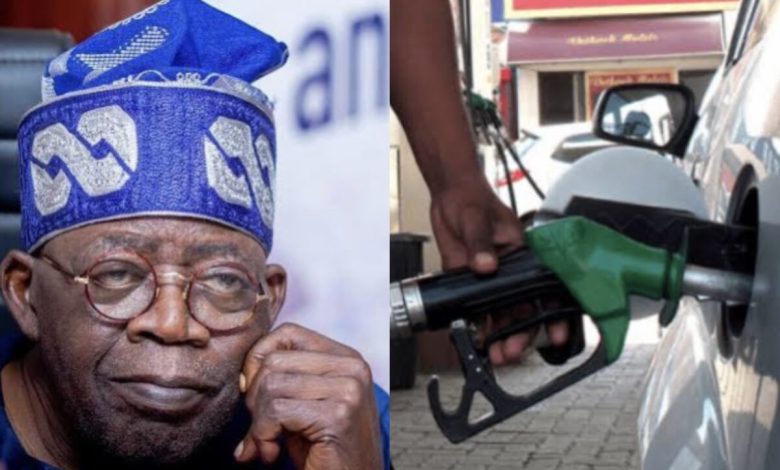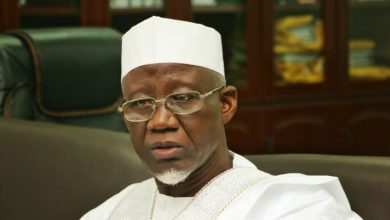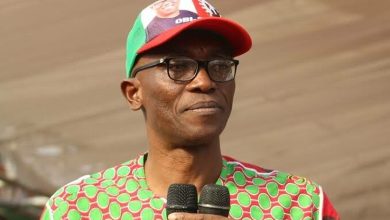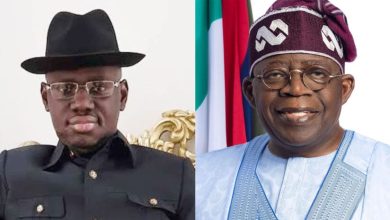Tinubu: Savings From Fuel Subsidy Removal Are Being Reinvested

By stating that the money saved from the elimination of gasoline subsidies is being put back into important sectors to promote inclusive development and restore public confidence, President Bola Ahmed Tinubu has reaffirmed his administration’s dedication to openness and budgetary restraint.
President Tinubu said that the decision to eliminate the fuel subsidy was tough but necessary to realign the country’s fiscal priorities while speaking through Dr. Doris Nkiruka Uzoka-Anite, Minister of State for Finance, at the National Conference on Public Accounts and Fiscal Governance on Monday. The conference was organized jointly by the Senate and House of Representatives’ Public Accounts Committees (PACs).
Nigeria spent more than ₦4 trillion on gasoline subsidies in 2022, surpassing our capital expenditures for the same year. In addition to being unsustainable, this budgetary route was unjust, favoring the wealthy, promoting cross-border smuggling, and creating systemic inefficiencies, Tinubu said.
He pointed out that since the subsidy was removed, funds have been allocated toward specific economic projects, enlarged social safety nets, upgrades to mass transit, and the construction of critical infrastructure.
“We have strengthened our fiscal buffers, which has improved Nigeria’s ability to withstand external economic shocks,” he continued.
Tinubu emphasized the significance of openness, responsibility, and responsible resource management, characterizing fiscal administration as the “foundation of national growth.” He also added that a country’s riches is meaningless without these principles.
Read Also: Imaobong Uko Accuses AFN of Negligence Following Two-Year Ban
The president expressed optimism about Nigeria’s future while acknowledging historical fiscal inefficiencies and reliance on oil revenue. He highlighted recent legislative reforms in the tax system that aim to digitalize revenue collection, streamline procedures, expand the tax base, and make doing business easier.
“These tax measures are essential to our national transformation; they are not only cosmetic adjustments. We’re creating a self-sufficient, diverse economy that isn’t dependent on oil alone,” he stated.
According to Tinubu, strategic industries including mining, manufacturing, technology, agriculture, renewable energy, and the creative sector are already reaping the benefits of increased investment and reform-driven focus.
Additionally, he mentioned the recently established National Credit Guarantee Company as a means of assisting small and medium-sized businesses (SMEs), increasing domestic output, and promoting exports other than oil.
Regarding monetary policy, Tinubu praised the Central Bank of Nigeria’s (CBN) efforts to stabilize the currency and reduce inflation, pointing to better coordination between the fiscal and monetary authorities.
He reaffirmed the indisputable nature of government openness, citing the Open Treasury Portal, IPPIS, and GIFMIS as examples of digital technologies to improve accountability in public finance management.
People can access real-time financial data, hold leaders responsible, and track public spending thanks to these platforms. “We need to shift from opacity to transparency,” he emphasized.
The president reminded the National Assembly that oversight is a constitutional duty and not a political tool, and he urged them to carry out its oversight responsibilities with independence and honesty, especially the PACs.
Every naira needs to represent value in terms of money. “The people’s interests must be served by budgets,” he said.
Additionally, he promoted citizen involvement in governance by calling on the court, civic society, and media to actively demand budgetary responsibility.
Akpabio Alerts People to Growing Legal Non-Compliance
Senate President Godswill Akpabio, through Senator Abdul Ningi, called on PACs to exert their constitutional duties under Sections 80, 81, and 88 of the 1999 constitution, warning of the increasing disdain for legislative summonses by public officials and agencies.
“PACs have the authority to call anyone to explain how public funds are being used.” “Refusing to appear before them undermines the rule of law and is a direct insult to democracy,” Akpabio stated.
He called out MDAs’ increasing disregard for supervision and asked PACs to reaffirm their importance by in-depth research and value-based evaluations of public spending.
Akpabio urged lawmakers to address oversight issues with better technical assistance and digital technologies, particularly with regard to intricate organizations like the central bank, NNPC Limited, and FIRS.
“This conference should empower lawmakers with practical strategies to strengthen fiscal governance, not just rhetoric,” he stated.
Abbas Issues a Warning Over N300 Billion in Unrecovered Public Reserves
Nigeria’s inadequate audit enforcement was criticized by Speaker of the House of Representatives Rt. Hon. Abbas Tajudeen, who was represented by House Leader Julius Ihonbvere. He revealed that more than ₦300 billion worth of audit queries are still ongoing.
“This culture of ignoring audit recommendations needs to change.” He stated that financial violations must have repercussions.
In order to assure compliance by MDAs, he pointed out that the House has moved from passive review to active enforcement, implementing follow-up procedures, digitizing audits, and real-time tracking technologies.
Abbas emphasized the House’s efforts to make audit reports easier to read and use for public engagement, saying, “Fiscal oversight is no longer a formality, it’s a strategic tool for national development.”
The speaker also emphasized the necessity of ongoing oversight of budget implementation beyond authorization and promoted a single national audit mechanism to guarantee accountability at all governmental levels.
“A culture of impact-based fund assessments, sectoral audits, and performance reviews is being institutionalized,” he continued.
Wadada Calls for an End to Fiscal Carelessness
A national recommitment to fiscal integrity was demanded by Senator Ahmed Wadada, the chairman of the Senate Public Accounts Committee, who emphasized that the country has been denied vital progress due to the mismanagement of public monies.
“The ethical compass of public service is fiscal governance; it establishes whether revenues result in prosperity or wasted opportunities,” he stated.
In order to improve financial transparency, Wadada said the Senate PAC has increased oversight, held public hearings, and involved stakeholders, citing a recent Auditor General’s report that revealed accountability flaws in multiple departments.
Additionally, he promised that the 10th Senate, led by Akpabio, will examine antiquated fiscal rules and strengthen cooperation across government branches in order to put an end to financial wrongdoing.
Salam Demands Systemic Changes in the Fiscal System
Nigeria’s fiscal system needs to be overhauled systemically, according to Hon. Bamidele Salam, chairman of the House Public Accounts Committee.
“Fiscal Governance in Nigeria: Charting a New Course for Transparency and Sustainable Development” is the topic of the conference, which he stressed must produce tangible reforms rather than just grandiose statements.
“It is imperative that we establish a culture in which public funds are viewed as a public trust rather than a private privilege,” Salam stated.
He emphasized the strain that the nation’s public finance system faces due to population increase, high youth unemployment, and infrastructure deterioration. He also emphasized the significance of citizen participation in budgeting and governance procedures.
While acknowledging the advancements made under Tinubu’s Renewed Hope Agenda, Salam emphasized the necessity of improved auditing, financial reporting, and compliance with constitutional requirements.
Nigeria’s Leadership in Fiscal Reform Is Acclaimed by AFROPAC
Nigeria is leading the continent in fiscal accountability and openness, according to Hon. Medard Lubega Sseggona, president of the African Organization of Public Accounts Committees (AFROPAC).
The meeting, he said, shows a strong commitment to sustainable growth and responsible financial management.
“This forum reaffirms Nigeria’s leadership position in bolstering Africa’s public financial management.” It is an admirable start in the direction of establishing accountability-driven governance throughout the continent,” he stated.





